
How do you see global warming or climate change impact automotive design?
As a company, we have to make sure we are in sync with these global targets and objectives (to rein in global warming). A designer's job is to find solutions to problems. So this is not seen as a crisis but an opportunity - not just product-wise but also as a business.
Tata Motors is making a very big push with respect to electrification and you can see it already with our current market share. We have an ambitious plan of electrifying our entire range. As we go into the next generation of products, it almost offers a white sheet of paper for designers. When you are designing a 'born electric vehicle' to meet the targets, it actually creates a blank canvas for the designers to create something new and this is not limited to just the powertrain perspective of auto designing.
From a creative point of view, it is actually very empowering, and then, of course, it is not just the powertrain but the materials that are used. We are keen about making sure they are sustainable and part of the circular economy so in the end, the emission is net zero. For me, it is actually a huge opportunity and exciting.
What kind of risk do the heat islands developing in many regions, including India, pose in terms of designing an automobile? What then are your priorities in adapting to these extreme conditions?
Fundamentally, the first priority would be to address the environment to avoid this kind of extreme weather conditions. In the end, our products are mobility products. Their job is to take a person from point A to B and also take a person safely to point B from A. That has to be always the chief objective of our products.
この記事は Autocar Professional の 1st June 2022 版に掲載されています。
7 日間の Magzter GOLD 無料トライアルを開始して、何千もの厳選されたプレミアム ストーリー、9,000 以上の雑誌や新聞にアクセスしてください。
すでに購読者です ? サインイン
この記事は Autocar Professional の 1st June 2022 版に掲載されています。
7 日間の Magzter GOLD 無料トライアルを開始して、何千もの厳選されたプレミアム ストーリー、9,000 以上の雑誌や新聞にアクセスしてください。
すでに購読者です? サインイン

Spain's Fersa Group invests in India-based Delux Bearings
Besides theRs100 croreinvestment, the Indian company gets access toadvanced technologies and bearings with arange of applications that willhelpinits global growth strategy, writes Manobhava Baruah.
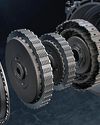
Tata Autocomp to open compact dual-clutch transmission plant
Amidthe country’s growing need for personal mobility with easy manoeuvrability, comes the demand for vehicles with automatic transmission. Tata AutoCompisready tomovein writes Shruti Mishra.

Pankaj Munjal-backed Hero Motors raises equity from GEF Cap
The company willinvest Rs1,500 crore over thenextthree years andit expects 60 percent ofits turnover to come fromelectric vehicle parts. Itaims to becomea Global EV Solutions Company from India
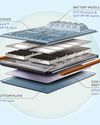
New age thermoplastics for next-generation EV batteries
Saudi-based global materials major SABIChas developed cutting edgein fire-resistant polymers and flame-retardant materials that comply with various EV battery safety standards across the world.
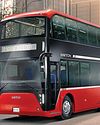
Switch Mobility to meet growing e-bus demand with fresh capex
Oncourse for abillion-dollar business, the company is exploringa possibility of operating satellite factories across the country to serve different geographies, write ShahkarAbidi and Ketan Thakkar.
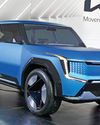
Kia India to invest Rs 2,000 crore in EVS, to introduce new e-RV in 2025
New investmentto drive R&D, infrastructure development and manufacturing capabilities. The company willlocally produce EVsin India with possibility of exports as well, writes Mayank Dhingra.

"The government has given enough time for indigenisation but the industry has not taken it seriously"
Amitabh Saran, Founder and CEO, Altigreen, shares his views on problems inthe EV industry and battery localisation solutions with Amit Vijay M.
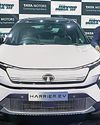
TATA MOTORS SEES ONE INTWO CARS SOLDAS EVS BY 2030
The company aims to offer wider choices withnew EVs that may straddle a pricebracket of Rs20to 40lakhinthe coming years, writes Ketan Thakkar.

MG Motor India in expansion drive, to invest $100 million
The investment willbe usedtoramp up existing production capacity from1.2to1.4-15lakh units per annum atthe automaker's Halol plantin Gujarat, writes Ketan Thakkar.

"Technology and its multiplier effect are driving business transformations and customer experiences"
Technical Centre India is one of Continental’s largest research and development centres in the world, andasa Centre of Competence’ it also develops customised products for the BRIC countries.